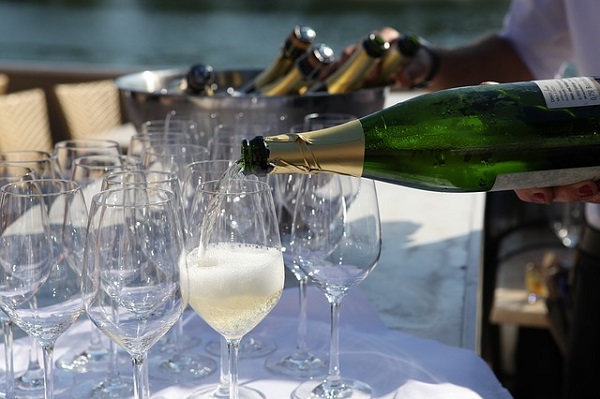 Credit: Pixabay
Credit: Pixabay
The 14th edition of the Luxembourg Viticulture Day, organised by the Luxembourg winegrowers' association (Luxemburger Winzerverband) and the Wine Institute (Institut viti-vinicole - IVV), took place on Wednesday 2 February 2022 in the form of a webinar and in the presence of Luxembourg's Minister of Agriculture, Viticulture and Rural Development, Claude Haagen.
In addition to a review of the 2021 wine year in the context of the COVID-19 pandemic, this year's conference addressed organic viticulture, support programmes and protective measures against grapevine diseases.
In his speech, Agriculture Minister Claude Haagen described the Luxembourg Viticulture Day as an important event and exchange of information for winegrowers. He also addressed the viticulture market situation. Minister Haagen welcomed the fact that crémant sales in 2021 had returned to the pre-crisis level of 3.2 million bottles. The national consumption of local wines and crémant was 57,000 hl in 2021. Moreover, there has been a tendency on the wine market that consumers are drinking less wine but higher-quality products.
The Agriculture Minister highlighted the measures taken by the Wine Institute to cushion the impact of the pandemic on viticulture. The 2021 grape harvest went smoothly, in compliance with all sanitary rules, as a result of the nationwide distribution of rapid antigen tests to all wineries that employed seasonal workers. In cooperation with the national unemployment agency, ADEM, 31 local harvest workers were also recruited. Moreover, the Ministry of Agriculture, Viticulture and Rural Development helped the crisis-ridden wine sector financially. The subsidy for the marketing of local wines and crémants was increased by an additional €350,000, winemakers' contributions to the Fonds de Solidarité Viticole were taken over and wine taverns received support.
Minister Haagen also addressed the current status of the European Union's (EU) new Common Agricultural Policy (CAP) for 2023 to 2027 and its implementation within the framework of Luxembourg's national strategic plan. In its elaboration, the suggestions for improvement of the wine-growing sector were taken into account. In the new funding period, the LEADER rural development initiative included in the national strategy plan in the Moselle region will increasingly mobilise public and private partners to support people in the region in realising their own project ideas. Luxembourg's Agriculture Minister wished all winegrowers a successful wine year in 2022.
The speeches were followed by a technical panel discussion on the subject of organic viticulture with national experts. The aim is to further develop the proportion of organically farmed vineyards in Luxembourg in a targeted manner, in line with the national action plan for the promotion of organic farming (PAN Bio 2025).








